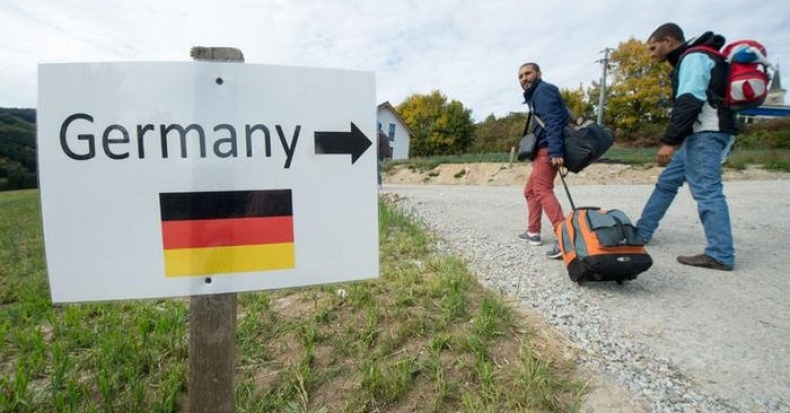MPs in the Bundestag who oppose new measures to tighten asylum procedures are aiming to counter the decline of Germany’s tolerant immigration policy. The pro-migrant MPs come from various parties, particularly the left. Following attacks by asylum seekers, particularly the incident in Solingen, thirty-five members of the Social Democratic Party have strongly criticized the federal government’s package of measures aimed at addressing immigration.
The new set of measures includes steps to curb illegal immigration, such as stricter border controls, a ban on carrying knives, and expanded powers for security agencies. However, the package was not passed by the Bundestag in September due to opposition criticism, and discussions have been postponed until mid-October.
Members of the Socialist Party have published an open letter addressing the government’s justifications for tightening asylum policies. They are calling for compliance with the law and adherence to human rights agreements. The letter, spearheaded by Gesine Schwan, head of the party’s values committee, has garnered signatures from 13,000 members, including prominent politicians like Karamba Diaby, Rasha Nasr, and Hakan Demir.
Lawmakers are trying to reassure asylum seekers by stating, “We share your sorrow, anger, and doubts amid the current discourse.” Their message addressed the uncertainty that followed the Solingen incident in Germany, urging not to mix security concerns with immigration policy. They emphasized the need for measures that “genuinely contribute to enhancing security, not actions against migrants,” and called for a balanced approach that responsibly weighs security against civil liberties.
In their letter, the MPs explicitly oppose cuts to asylum benefits, unjustified police searches, tightened border controls, and the detention of asylum seekers at the border. They are committed to preventing the passage of these measures when they are discussed in the Bundestag in mid-October.
The party leadership is treating the MPs’ letter with seriousness, according to Dirk Wiese, deputy head of the party’s parliamentary group. He stated, “Inclusiveness takes precedence over speed,” adding that the majority of the party supports the new measures, which should be enacted as soon as possible.
In the same context, the parliamentary group of the Green Party is calling for improvements to the security measures package. The deputy of the parliamentary group, Konstantin von Notz, stated, “Many profound European and constitutional questions have been raised.” Notz pointed out that there are ongoing negotiations regarding the reform of the new measures in small groups from the Traffic Light Coalition parties, aimed at addressing the criticisms raised about the package during the hearing.
“The winds are blowing fiercely in the migration debate, with international law and the Human Rights Convention under attack,” said Green Party parliamentarian Julian Balki, adding that human rights activists increasingly feel isolated.
Green Party MPs also criticized party ministers Robert Habeck and Annalena Baerbock for supporting the new anti-immigration measures. The party faced a mass exodus from its youth wing, driven by its failure to build a strong left-wing force for Germany—a development Balki described as a “warning sign” that the Greens must change their stance on immigration.





